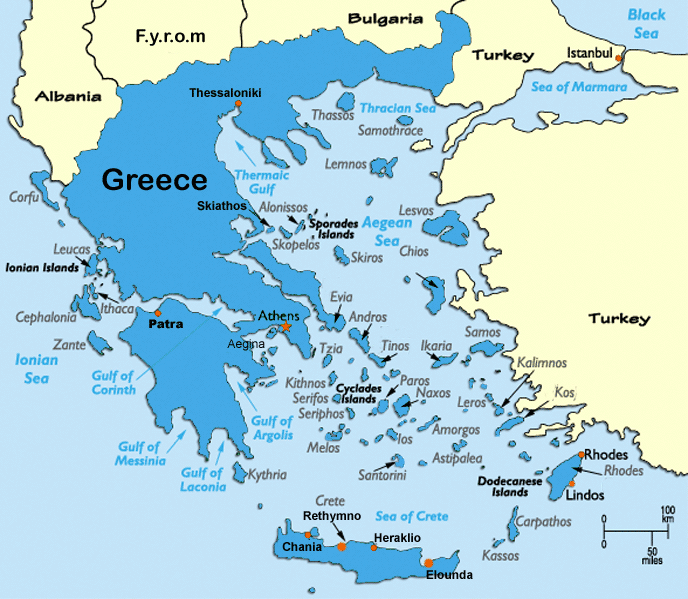. . . the Greek failure mostly demonstrates how wrong a single currency is for Europe. The Greek backlash reflects the enormous pain and difficulty that comes with trying to arrange "internal devaluations" (a euphemism for big wage and spending cuts) in order to restore competitiveness and repay an excessive debt level.Sorry for the extended quotes, that is not normally my style; but it is becoming clearer by the day that this crisis is inevitable. Funny thing about financial crises, once they are seen as inevitable, they arrive sooner than later.
Faced with five years of recession, more than 20 percent unemployment, further cuts to come, and a stream of failed promises from politicians inside and outside the country, a political backlash seems only natural. With IMF leaders, EC officials, and financial journalists floating the idea of a "Greek exit" from the euro, who can now invest in or sign long-term contracts in Greece? Greece's economy can only get worse.
. . .
The ECB has always vehemently denied that it has taken an excessive amount of risk despite its increasingly relaxed lending policies. But between Target2 and direct bond purchases alone, the euro system claims on troubled periphery countries are now approximately 1.1 trillion euros (this is our estimate based on available official data). This amounts to over 200 percent of the (broadly defined) capital of the euro system. No responsible bank would claim these sums are minor risks to its capital or to taxpayers. These claims also amount to 43 percent of German Gross Domestic Product, . . .
For the last three years Europe's politicians have promised to "do whatever it takes" to save the euro. It is now clear that this promise is beyond their capacity to keep -- because it requires steps that are unacceptable to their electorates. No one knows for sure how long they can delay the complete collapse of the euro, perhaps months or even several more years, but we are moving steadily to an ugly end.
Hopefully Team Romney is studying the situation and is readying a plan. I maintain my long held position (here and here) that McCain could have won the 2008 election if he had proposed a radically different plan than the TARP and stimulus that both Bush and Obama supported. If I know anything about Team Obama, they will triple down on these failed policies if the coming euro crisis hits before the election. They might even be foolish enough to try and pledge U.S. aid to help save the euro. We need to keep an eye on the Fed as well. Romney should be ready with his own plan. If it embraces the free market, he wins in a walk.








